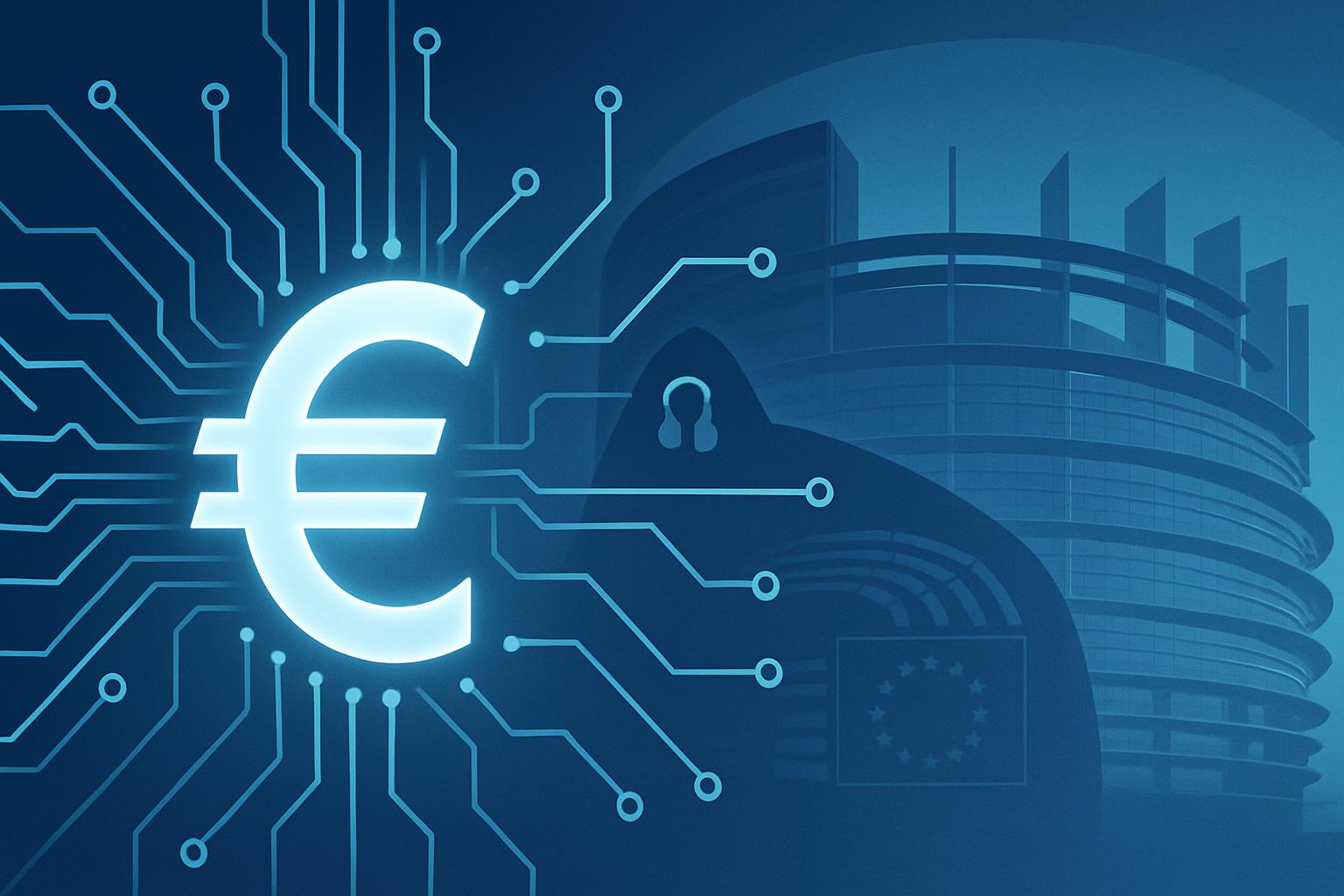ECB Advocates Digital Euro Amidst Parliamentary Skepticism
The European Central Bank (ECB) has intensified its efforts to introduce a digital euro, positioning it as a vital tool to maintain uninterrupted, universally accepted digital payments across the European Union. However, this initiative has encountered resistance from members of the European Parliament, who question the proposed currency’s privacy safeguards and express concern over its potential to disrupt the commercial banking sector.
Digital Euro as a Crisis Contingency
During a parliamentary economic committee hearing, ECB board member Piero Cipollone emphasized the digital euro’s role in ensuring payment resilience, particularly during major disruptions such as cyberattacks or network failures. He noted that current digital payment infrastructures largely depend on non-EU providers, which could limit the EU’s ability to respond swiftly and independently in emergencies.
Cipollone stated that the digital euro is intended to complement—not replace—physical cash, which remains crucial for financial inclusion and resilience. He highlighted that digital payments have become integral to daily life, necessitating a government-backed solution to guarantee their stability.
Privacy and Banking Sector Concerns Raised by Lawmakers
However, critics such as Pierre Pimpie from the Eurosceptic Patriots for Europe group warned that the digital euro could incentivize citizens to shift deposits from private banks to ECB accounts, potentially destabilizing commercial banks. Pimpie also criticized the ECB’s authority to set limits on digital euro holdings, fearing these caps could be manipulated during crises.
In response, Cipollone indicated that any caps would be determined through rigorous analysis and cautioned that in severe crises, wealthy individuals might prefer foreign stablecoins, presenting a greater challenge than the digital euro itself.
Legislative Timeline and Implementation Prospects
The legislative process for the digital euro has been underway since 2023 but has experienced delays linked to political factors and the 2024 EU elections. Cipollone projected that the necessary legal framework could be established by mid-2026, contingent on approval by the European Parliament, Commission, and Council.
Following legislation, the ECB anticipates a development and testing phase for the digital euro’s infrastructure lasting up to three years, positioning a possible launch around 2029, assuming no further postponements.













